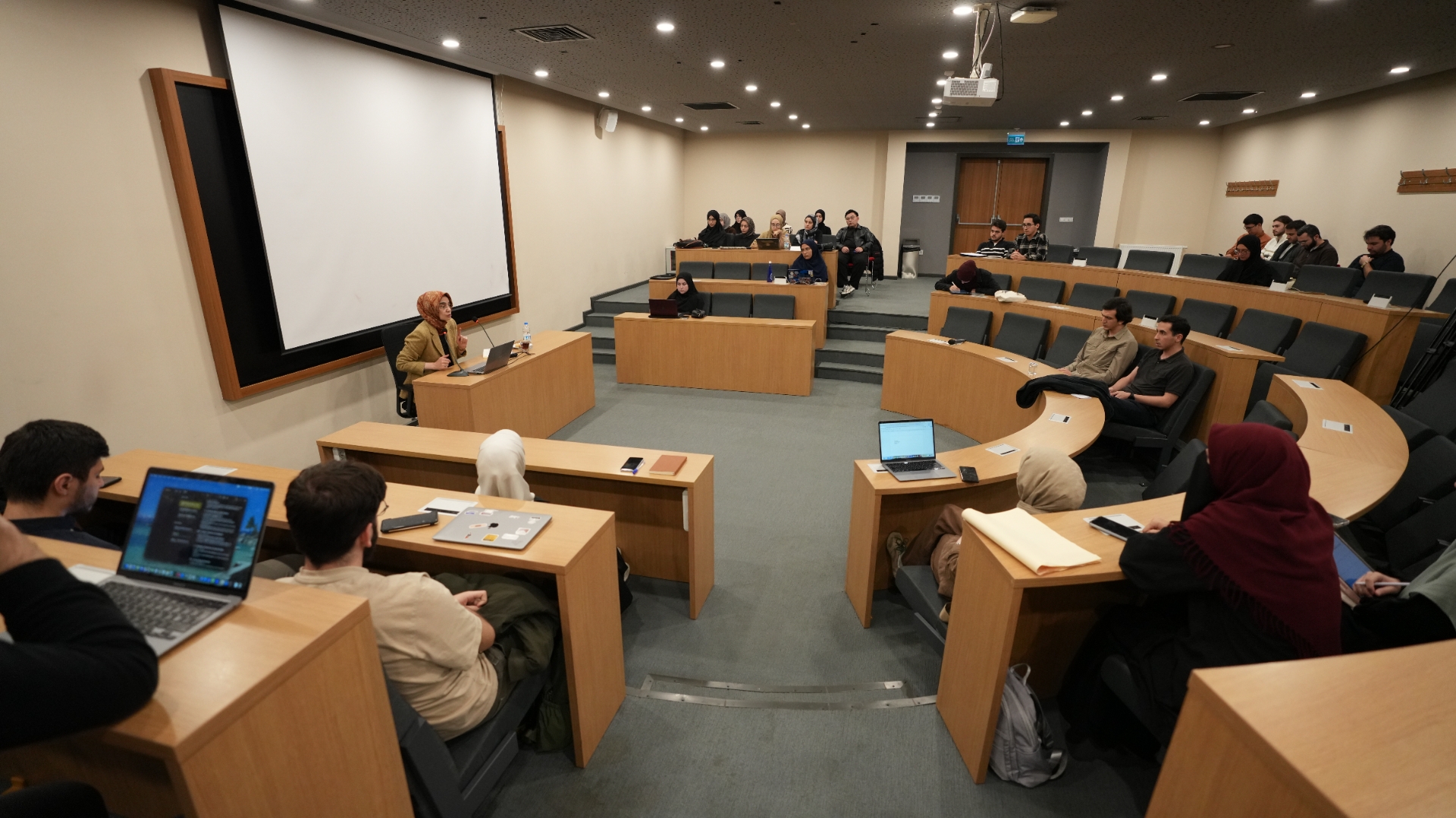


Organized by the School of Islamic Studies at Ibn Haldun University, the eighth session of the Islamic Studies Conferences series was held on Tuesday, 4 November 2025, at the Media and Events Center, Teoman Duralı Conference Hall, with a lecture delivered by Dr. Hatice Umut, Qur’an Course Instructor at the Üsküdar Mufti’s Office in Istanbul, titled “What Is the Ultimate Aim of al-Farabi’s Political Thought?” The conference offered a comprehensive evaluation of al-Farabi’s concepts of the ideal society, happiness, and virtuous governance, taking his political theory as its central focus.
In her presentation, Dr. Umut examined the fundamental components of al-Farabi’s political thought within its historical context and placed particular emphasis on the concept of saʿāda (happiness), which constitutes the ultimate aim of political philosophy. Highlighting that al-Farabi’s vision of a virtuous society offers a multilayered philosophical framework extending from individual perfection to the construction of social order, Dr. Umut underscored that political virtue is made possible not only by the qualities of the ruler but also by a moral consciousness shared across the entirety of society. In this regard, she explained that al-Farabi proposes a hierarchical yet functional structure that connects different segments of society.
Dr. Umut noted that al-Farabi’s understanding of politics holds significant implications for contemporary political theory as well, evaluating through examples the points of continuity and divergence between modern political structures and al-Farabi’s conception of the ideal order. Elaborating on the relationship the philosopher establishes between knowledge, virtue, leadership, and collective happiness, she emphasized that this framework continues to provide a robust ground for discussion in modern political thought.
During the Q&A session, participants asked questions regarding al-Farabi’s approach to the concept of politics, the extent to which the Medinetü’l-Fazıla model can be applied in contemporary societies, and the relationship of his political philosophy with that of other Islamic philosophers. The discussions highlighted that al-Farabi’s political thought is not merely a philosophical ideal but also represents a continuous intellectual current within the history of Islamic thought.
The event concluded with active participation, contributions, and academic engagement from attendees. Those who wished to do so shared detailed reflections on the topic at the end of the program, further expanding the scope of the discussions.